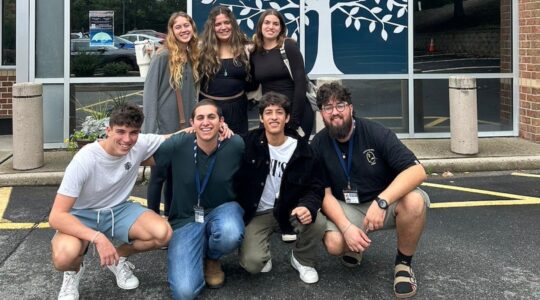As a JPost writer and the director of Birthright NEXT debate whether there is enough follow-up programing for the 220,000 alumni of Birthright Israel trips, the Jim Joseph Foundation’s Josh Miller says that other organizations can learn from what successful follow-up initiatives have found works:
The recent dialogue between Rabbi Daniel Brenner from Birthright Israel NEXT and Haviv Rettig Gur of The Jerusalem Post reopens an important conversation about the need for follow-up programming that fully leverages the Jewish community’s investment in Birthright Israel. Brenner responds to Gur’s pointed question of “where’s the follow-up?” with a summary of NEXT’s impressive accomplishments over the past year. He also acknowledges related work by Hillel, MASA and “forward-thinking federations like the CJP in Boston,” and states NEXT’s commitment to “partner with many more community-based organizations, both established and emerging.”
While organizations that are formally engaged in Birthright Israel follow-up have achieved notable success, the responsibility to engage these alumni and their peers should not rest solely on the shoulders of a small handful of organizations. The broad range of Jewish community-based organizations that Brenner refers to also have an essential role to play. A number of these organizations already have proven themselves to be especially adept at this work. They deserve recognition and additional support to expand their efforts.
For the many Jewish community-based organizations that are struggling to better serve this cohort, there is a tremendous opportunity to learn from those that are succeeding, to rethink their current approaches and to become better partners in this national effort. Birthright Israel offers our entire Jewish community an unprecedented opportunity to be enriched by the energy and creativity of Jewish 20-somethings and 30-somethings — an age cohort that had been dismissed as “hard to engage.”
Leaders in organizations like Birthright Israel NEXT, Hillel and Moishe House have developed effective strategies that are collectively attracting tens of thousands of young adults to participate in serious Jewish communities. These communities offer programming that is rich with learning, ritual, celebration and activism. Leaders of these initiatives report that their organizations are attracting and retaining Birthright alumni in large numbers as both participants and leaders.
What can the rest of our Jewish communal organizations learn from these successful initiatives? From my own experience in building community for this age cohort and serving as a professional in a foundation that funds them, it begins with a successful “peer-to-peer” strategy. While the execution of this strategy can vary, the theory behind “peer-to-peer” is the following: young adults (like the rest of us) are more likely to participate when they are personally invited; they prefer activities that were conceived with them in mind; they like to be involved in the design process. Here are a few examples:
Through NEXT’s Community Initiatives, well-networked Birthright Alumni in seven cities are given part-time stipends to plan Jewish experiences for their peers.
As participants in Hillel’s Campus Entrepreneurs Initiative, a dozen paid student interns on each of 17 campuses engage their peers in Jewish conversations and build “micro-communities” around shared interests.
With help from Moishe House, hospitality-minded young adults in 28 cities create Jewish homes together and open them to their peers for Jewish celebrations and programs.
In each of these examples, young people are given the resources they need to create what they want on their own terms — community for community’s sake. Notably absent from these models are expectations of affiliation, hefty event fees, turf wars around whose event it is or institutional agendas.
This approach is quite distinct from the program-staff-driven strategies prevalent in many of our established institutions. It requires a high level of openness to working in partnership with young adults, their networks and the other organizations that have earned their trust.
The Jim Joseph Foundation, where I work, has invested significant resources in these “peer-to-peer” strategies in its work with college students and young adults. Early outcomes indicate that this approach is inspiring significant numbers of young adults to engage in Jewish life in ways that are meaningful to them. While there is still much to be learned about how to execute most effectively, this is clearly a strategy that demands the attention of all the institutions and funders seeking to engage Jewish young adults.
With 230,000 Birthright alumni and counting, the opportunities to do more with this age cohort abound both inside and outside existing organizational structures. There is plenty of room to expand existing models, to experiment with new ones, and to work together more closely to study and refine the strategies. In fact, it is exactly this kind of multifaceted, collaborative approach that is required if we as a community seek to fully capitalize on the “gift” of Birthright Israel.
Josh Miller is a program officer at the Jim Joseph Foundation and the former director ofJconnect Seattle.





